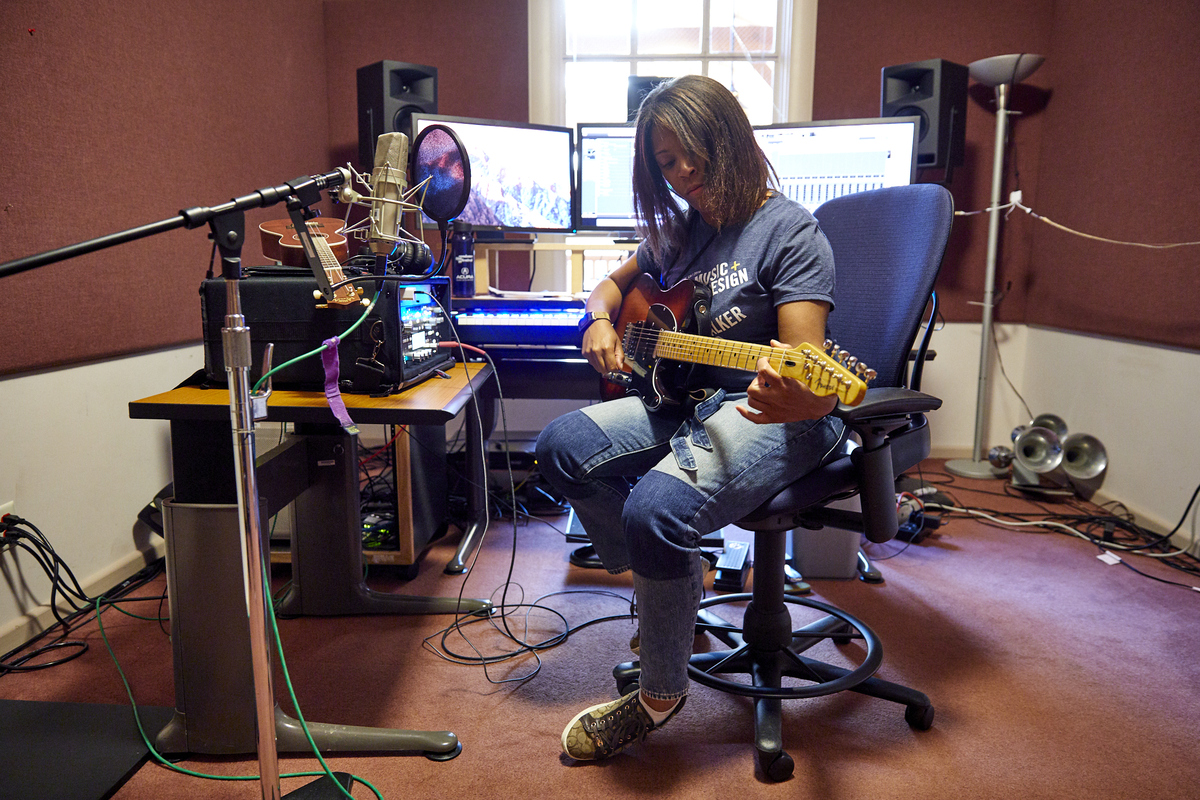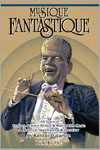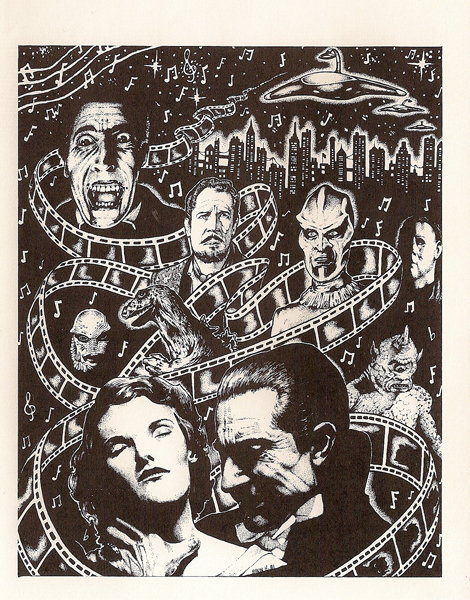August 26, 2022
Scoring Horror: Dara Taylor Accepts THE INVITATION
Interview by Randall D. Larson
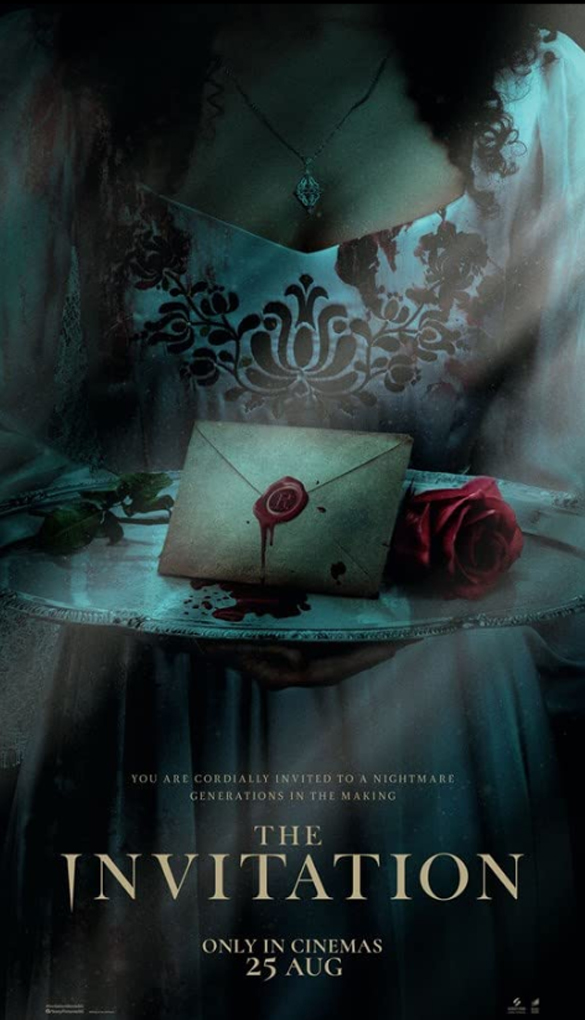
About Dara Taylor: Dara Taylor has emerged as a fresh voice in the world of scoring music to picture as evidenced by her score to Amazon Studios film THE TENDER BAR, directed by Academy Award-winning filmmaker George Clooney, and the Lionsgate comedy BARB AND STAR GO TO VISTA DEL MAR, which she scored with Christopher Lennertz. Her credits include the action crime drama ECHO BOOMERS starring Michael Shannon, the Netflix series BOOKMARKS, the Netflix docuseries TRIAL BY MEDIA, the FX series PRIDE, and the Karen Allen-starred film COLEWELL, for which she won a 2019 Hollywood Music in Media award.
As a score producer and composer for Chris Lennertz, Dara has contributed to major motion picture films and series including BAD MOMS, the action-comedy sequel SHAFT, Amazon’s highly acclaimed television series THE BOYS, Netflix’s sci-fi series LOST IN SPACE, THE HAPPYTIME MURDERS, UGLYDOLLS, and the long-running CW, show SUPERNATURAL. In 2015, Dara was nominated for a Hollywood Music in Media Award for her score on the short film UNDETECTABLE, and in 2016, she participated in the Women in Film’s Women Composers in Media concert.

In 2018, Dara was chosen as a fellow for the Sundance Institute Composers Lab and the following year she was chosen as one of the BMI Conducting for Composers Fellows. In 2021 she was chosen for both the Grammy NEXT program and the coveted Universal Composers Initiative. Taylor uses vocals passionately, studying musicals and acapella throughout school. Her zest for voice greatly inspires the tonality of the majority of her scores. Dara is a proud Executive Committee member for the Composers Diversity Collective, as well as a member of the Television Academy, Recording Academy, Society of Composers and Lyricists, Alliance of Women Film Composers, and Women in Media.
About THE INVITATION: After the death of her mother and having no other known relatives, Evie (Nathalie Emmanuel [GAME OF THRONES, ARMY OF THIEVES, FURIOUS 7, F9]) takes a DNA test…and discovers a long-lost cousin she never knew she had. Invited by her newfound family to a lavish wedding in the English countryside, she’s at first seduced by the sexy aristocrat host but is soon thrust into a nightmare of survival as she uncovers twisted secrets in her family’s history and the unsettling intentions behind their sinful generosity. The film was released to theaters on August 26, 2022.

A unique combination, Dara Taylor’s score shifts from eerie strings, obscure clangs, and avant-garde melodies to beguiling gothic-romance symphonies. While one portion of the score is classically driven, the other utilizes synthetic and processed elements, such as percussive sounds from pottery and distorted vocals, experimenting with the different sounds the human body can create.
Watch the trailer to THE INVITATION:
Q: Your score is a deliciously scary, effective, and affecting mix of sound design and acoustic instruments. How did you become involved in THE INVITATION and what were your initial discussions with director Jessica Thompson about scoring the film?
Dara Taylor: I sent them a reel. I had a meeting with Jess, I read the script, and we seemed to be very much on the same page about how we saw it musically. I know we wanted a lot of strange instrumentation and, especially, the use of women’s voices, which is a very prevalent part of the score. But then at the same time, we wanted to find a way to weave in some of the romance that’s in the film and the gothic nature of this giant mansion in the Eastern countryside.

Q: I believe this film is your first formidable horror score since 2017’s REEL NIGHTMARE, not to discount your grisly superhero episode “Nubian vs Nubian” in THE BOYS PRESENTS: DIABOLICAL. How did you prepare for what music and musical sounds would be needed in THE INVITATION?
Dara Taylor: There was a lot of experimentation with things. That’s always a part of composition that I like to play around with – seeing what an effected x, y, or z sounds like, or taking something that should be bowed and plucking it, or vice versa and threading it through a bunch of effects and seeing what comes out. I also worked on a score suite soon after I got the job, because that was one thing that Jess mentioned that she likes to listen to – even if they are just beginning ideas, it’s her introduction as she’s going through that process, just to hear what it might sound like to help give her a more gestalt view.
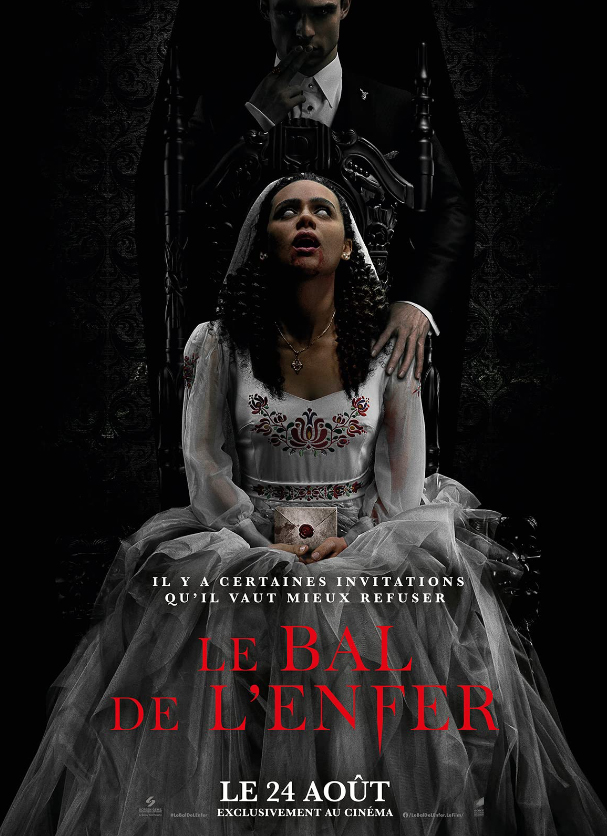
Q: Would you describe your score’s thematic and motific configuration and how you developed and interacted those elements across the arc of the story?
Dara Taylor: There are a few motifs. There’s a specific vocal motif that comes in. It’s in the very first track, and it comes in again near the end of the movie and it’s interwoven in between. I think the use of vocals in general slowly change throughout the film. They start off more effected, and then they grow and they change into a note structure, but also become a little less effected and more grounded and rooted. In the beginning the vocals are even reversed, just to give it another feeling of unsettled otherworldly-ness, and then by the end everything is bold and forward. There are also some other thematic things: Evie, the main character, has a theme and Walter has a theme that is sometimes also used as a theme for the location.
Q: The score is very effective in merging some disparate elements – such as your use of gothic romanticism contrasted against your score’s escalating unease. What was your process in configuring these various musical elements?
Dara Taylor: It was a lot of trying stuff out and bouncing them off of Jess and seeing what was working. One thing that she kept saying, she’s like “I love that weird thing! More of that!” or “More ‘strangement,’ more of these things that make you feel uncomfortable!” So I think she was really instrumental – pun intended! – in allowing me to push that envelope.

Q: Were the score’s acoustic elements designed from live players or from digital means, and what was your process in creating your synthetic and sound design elements?
Dara Taylor: A lot of them were acoustic – and not necessarily all of them were instruments! But there are things that take the purpose of a pad but it’s a sound of a pottery reel effect, or the sound of a sander run through different effects. And, of course, all the vocals are organic as well. I enjoy using acoustic instruments and then synthesizing them in ways, rather than just going straight to a keyboard sound. We recorded the orchestra in Budapest, which is also where they shot the film. I told the contractor, “Oh yeah, they shot the film in Budapest,” and he said “Yeah, I know! I recognize these locations!” And then I recorded three amazing vocalists here in Los Angeles. That was great, knowing what was necessary to get the best product.

Q: As the film’s mood grows further into dark and frightening alignments, your score brings in a variety of sonic elements – from the orchestral to the obscure and synthetic. How were these used to enhance the sense of menace and vulnerability that Evie is feeling?
Q: In the beginning, other than the very first cue and scene which sets up the film, we go to Evie and her life in Brooklyn, and that’s where it’s all very organic – we have strings, acoustic guitar, some light vocals, but we definitely avoid dread! And then, even when we first arrive at the manor, there’s a kind of sweeping orchestra, but there’s still hope in it; when she’s in a new place, there’s unfamiliarity that we still try and squeeze in there as well. In a way we’re trying not to get too ahead of Evie. The audience might be guessing, or they might just be thinking, “Huh, that’s weird!” but as we get more closer we see things that even she doesn’t. Things start to get more and more sinister, and whenever she sees what’s going on, no holds are barred!
Q: How did you use distorted and processed elements such as found sounds and voices to build frightening moments and musical stings?
Dara Taylor: A lot of it was combining the highs and the lows in those moments, and not just having it be just a low boom, or finding ways to even add a vocal to the sting, or adding some otherworldly elements to those moments. I think the constant feeling of discomfort helps; it makes you alert but I feel like it doesn’t give away what’s happening. It makes you feel uncomfortable but when the sting hits it really hits.
Q: There’s a really frightening, recurring, almost gruff vocal effect that you use throughout the score which really lends itself to a potent sense of anxiety. How did you come up with this particular musical element and how did you determine when to use it?
Dara Taylor: Without giving away any plot elements, let’s just say I used it as sort of a beckoning call for what’s happening in that place, what’s happened before, and what they’re hoping will happen again. It’s almost a siren song, in a way. It was actually a recorded vocal and then that vocal was reversed. Everything was sung backwards from how you hear it! And then it’s adding onto that fuzz and distortion and things that are usually kept for punk rock guitars… you recognize it like a vocal but it doesn’t feel like one. It’s lends itself to that unsettled feeling.
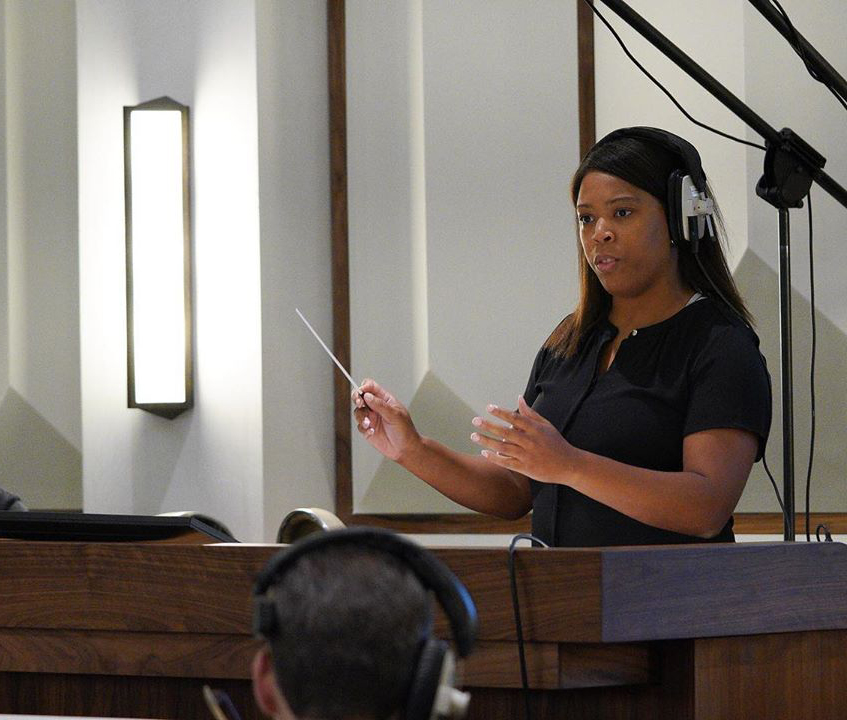
Q: What was most challenging, interesting, or rewarding about scoring THE INVITATION?
Dara Taylor: There were a lot of really great rewarding things. First of all, I loved working with the whole team. That’s always important to me, to feel a kinship to the people I’m working with. Jess was amazing to work with, and the whole team was. The challenges were finding some stuff to score for the romance part, letting those be their own moments but not feeling so disparate from the rest of the film that it feels like there are two scores happening. And then finding ways to eek in an unsettling string in the midst of the more romanticized things, just finding ways to sprinkle in a tiny bit of dread!
Q: What’s coming up next that you can talk about?
Dara Taylor: I have a Netflix film coming out called THE NOEL DIARY, directed by Charles Shyer and it stars Justin Hartley. That should be out some time soon!
Special thanks to Kyrie Hood of White Bear PR for facilitating this interview and providing images of Dara, and to Dara for taking time out to share her experiences and creation of the score with me. Images from THE INVITATION via IMDB.
Dara Taylor’s soundtrack to THE INVITATION is available digitally from Amazon, Spotify, AppleMusic and other digital music sources.
For more information about the composer, see her website https://www.darataylor.com/
See my previous interview with Dara Taylor on scoring the “Nobian vs Nubian” episode in THE BOYS PRESENTS: DIABOLICAL, in my June Soundtrax column.
